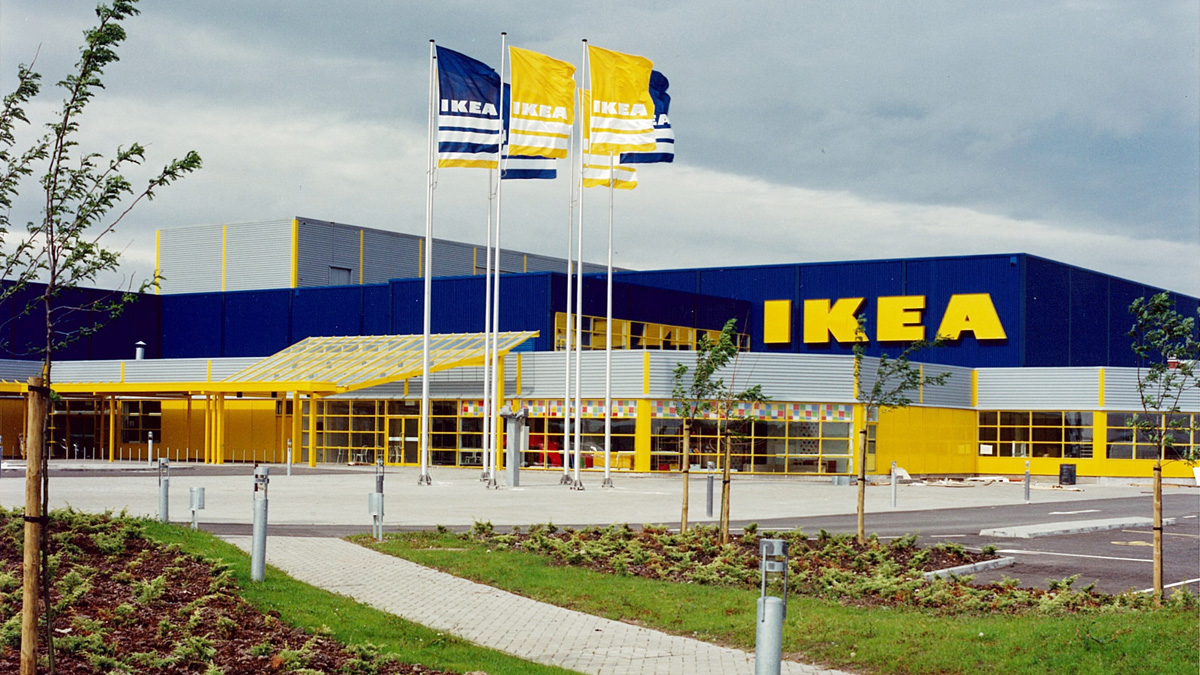The origins of self-help books
Plus, Rightmove bid rejected...again, Co-op announces plan for new stores and £1m worth of phones left on trains a year

This article is an online version of our Off to Lunch newsletter. Sign up to receive it straight to your inbox here.
Business Agenda
A summary of the most important business news
1. Rightmove, the online property portal, has rejected a £6.1bn takeover bid from Australian company REA. Rightmove said in a statement that the bid, which is the third that REA has tabled, “continues to be unattractive and materially undervalues the company and its future prospects”. You can find the statement here.
2. The Co-op is planning to open 120 new shops by the end of 2025. The retailer also revealed in its latest interim results that theft and fraud cost it £39.5m in the first six months of the year, up 19 per cent year-on-year. You can find the results here.
3. If the quality of management in UK businesses improved to the same level as the US and Europe then productivity in the country would increase by around 8 per cent. That is according to research by the World Management Survey. You can read more in the latest Klement on Investing newsletter here.
4. The Economist has looked into the origins of self-help books. It began with a book by Samuel Smiles in 1859 called Self Help, which was ridiculed by critics but snapped up by readers. Sound familiar? More here.
5. Is Uber trying to do too much? That is the question posed by the Financial Times in a fascinating analysis of the business. The article says: “Khosrowshahi [Dara, the chief executive], who in 2019 proclaimed that he wanted Uber to be the ‘operating system for your everyday life’, tells the FT that is still very much the company’s goal. Uber, he says, should be the ‘default choice for the movement of people and things’.” You can read the analysis here.
Business Question
Guess the year
- Parliament decides to nationalise 90 per cent of the British steel industry
- The Beatles’ album Sgt. Pepper’s Lonely Hearts Club Band is released
- Wimbledon is the first colour television broadcast
- The bank holiday on the last Monday in August replaces the original bank holiday on the first Monday in August
- Allison & Busby, British Steel, Aveva and The Chelsea Cobbler are founded
The answer can be found at the bottom of the page.
Business Thinker
Deep dives on business and leadership
By Dougal Shaw
🎒 Station F – The world’s biggest start-up campus
Station F opened in 2017 in a former freight train depot in central Paris. Today it is known as the biggest start-up campus in the world, housing more than a thousand early-stage businesses under one roof.
When you read this, I will just have arrived at Station F. (I took the Eurostar from London this morning).
I’m going there to meet some start-ups and get a sense of what it’s like. Open the newsletter tomorrow and I will update you!
It’s been credited with giving France’s start-up scene a shot in the arm. Success stories like Mistral, PhotoRoom and Poolside have all grown there.
The idea is that start-ups benefit from being under one roof together, meaning they can inspire each other but also easily access things like legal advice, public services and investment opportunities.
Station F is a commercial operation and is the brainchild of Xavier Niel, who invested €250m in the project. The billionaire French businessman is the owner of Free, the mobile and ISP provider, and co-owner of Le Monde newspaper.
Business Quote
Inspiration from leaders
“The art of leadership is saying ‘no,’ not saying ‘yes.’ It is very easy to say ‘yes.’”
– Tony Blair
Business Leader
The best of our content

The secret to explosive growth
Must Have Ideas is rapidly emerging as one of the UK’s fastest-growing online retailers, shipping 7,000 items a day. With products ranging from mould-cleaning brushes to adjustable tables, the company’s customer-friendly promises – free delivery if late and a 100-day money-back guarantee – have earned them glowing reviews: 4.7 stars on Trustpilot from 115,000 reviews and a similar rating on Google.
Founded by Amy Knight, her husband Rob, and friend Chris Finch, the company achieved £26.8m in sales last year alone. This success stems from their deep understanding of customer needs and their ability to source unique products that stand out in the crowded marketplace. Their first product, the Hygiene Hero antibacterial sponge, exemplified this approach: small, innovative, and easy to ship from their spare room in the early days.
Must Have Ideas thrives on identifying products that solve real problems and can be easily demonstrated via engaging social media videos. The company spends £1.5m monthly on Meta advertising, but rather than relying on agencies, they prefer to keep marketing efforts in-house to maintain full control over their brand.
In this case study, Knight stresses the importance of constant testing – from ads to website changes – to keep up with consumer trends and maximise their sales funnel. The company’s innovative, data-driven approach has fostered a loyal community of over 200,000 Instagram followers and 360,000 Facebook fans, eagerly awaiting the six new products they launch each month.
With this winning formula, Must Have Ideas is on track to hit £60m in turnover this financial year, positioning itself as a major player in the online retail space.
You can read the case study here.
Other popular pieces
💻 Inside the rise of Larry Ellison’s tech empire
🟢 The net-zero transition: A 3-point plan for smaller businesses
And finally…

Five mobile phones a day are left on a local train network. South Western says the value of lost devices exceeds £1m in a year.
This statistic amazed me.
South Western Railway – bear in mind, just one company – reports that more than 1,750 phones have been lost on trains in the past year. They reckon the cost of these lost phones adds up to over £1m.
We are supposed to be addicted and obsessed with our mobiles, the most beloved objects of our digital age. So why are we so absent-minded with what we love?
“The firm said it estimated that more than 30,000 phones had been lost since 2007. Lined up end to end, it said the lost devices would stretch more than 2.5 miles (4km).”
Hopefully I won’t leave my phone on the Eurostar today. Apart from the usual hassles, I also film everything for Business Leader on it, so my rushes from Station F would be gone too!
The answer to today’s Business Question is 1967.



